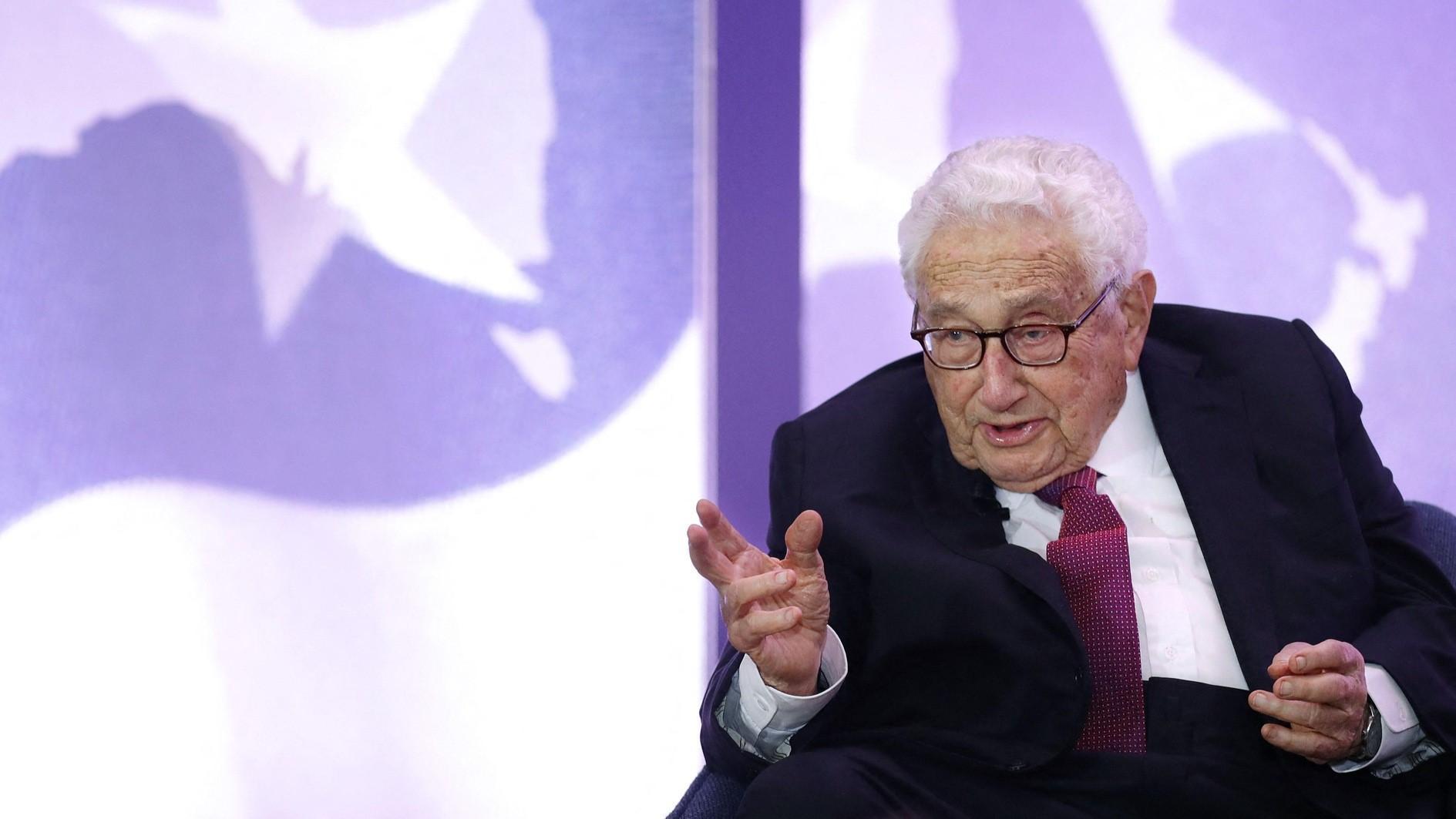US diplomat Henry Kissinger dies at age 100
WASHINGTON

Henry Kissinger, the former U.S. secretary of state whose unapologetic promotion of raw American power helped shape the post-World War II world, died Wednesday at the age of 100, his consulting firm has said.
Kissinger, arguably the most identifiable secretary of state in modern times, died at his home in Connecticut, announced Kissinger Associates, through which the late diplomat grew wealthy helping businesses for decades after his government career.
It said that Kissinger's family would hold a private funeral, with a memorial service to take place later in New York, where Kissinger grew up after his Jewish family fled Nazi Germany.
The statement did not provide a cause of death. Kissinger had remained active even at as a centenarian, traveling to China in July to meet President Xi Jinping.
China was one of Kissinger's most lasting legacies. Hoping to shake up the Cold War fight against the Soviet Union, Kissinger secretly reached out to Beijing, culminating in a historic 1972 visit by president Richard Nixon and later the US establishment of relations with the then-isolated country, which has soared into the world's second largest economy and growing competitor with Washington.
While Kissinger was despised in much of the world, China's ambassador to Washington, Xie Feng, called Kissinger a "most valued old friend" and his death a "tremendous loss for both our countries and the world."
Kissinger at home also enjoyed deference across the political mainstream, with incumbent Secretary of State Antony Blinken, a member of the rival Democratic Party, attending his 100th birthday party in New York.
Kissinger was awarded the Nobel Peace Prize for negotiations to end the Vietnam War, even though the conflict did not immediately end and his North Vietnamese counterpart, Le Duc Tho, declined to accept the prize.
After the Watergate scandal brought down Nixon, Kissinger served under his successor, Gerald Ford. In an unprecedented arrangement reflecting his influence, Kissinger served simultaneously as secretary of state -- the country's top diplomat -- and national security advisor, the president's right-hand aide.
Realpolitik and its consequences
While Kissinger's intellectual gifts were begrudgingly acknowledged even by his critics, he remains deeply controversial for his ruthless philosophy of realpolitik -- the cold calculation that nations pursue their own interests through power.
Declassified documents showed that Kissinger gave his blessing to the undermining of Chile's elected Marxist president Salvador Allende and the 1973 coup by General Augusto Pinochet.
Kissinger also supported Indonesia, a close anti-communist ally, as it seized East Timor in 1975. More than 100,000 East Timorese died from the start of the invasion -- launched one day after Kissinger and Ford met Indonesian leader Suharto -- until Indonesia ended its occupation in 1999.
Kissinger also turned a blind eye to Pakistan's mass atrocities as Bangladesh won independence in 1971, believing the US interest was keeping Islamabad as the quiet go-between with China.
Seeking to pull out of Vietnam but with a stronger hand at the negotiating table, Nixon and Kissinger authorized a secret 1969-1970 bombing campaign in Laos and Cambodia aimed at disrupting rebel movement into South Vietnam.
The bombing did not halt the infiltration but it killed thousands of civilians and helped spawn the genocidal Khmer Rouge.
Kissinger similarly showed little concern over Cyprus when Greece's military junta deposed the elected leader, Archbishop Makarios, and Turkey in 1974 invaded the island, which remains divided.
















